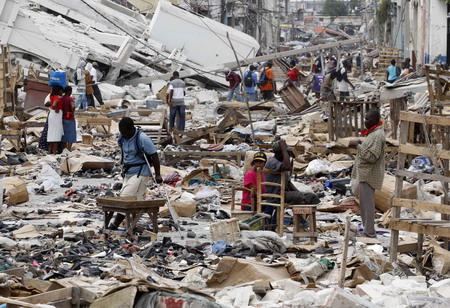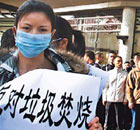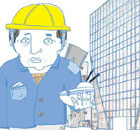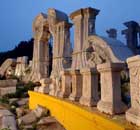Global General
40,000 bodies buried, another 100,000 feared dead
(Agencies)
Updated: 2010-01-16 05:40
 |
Large Medium Small |
|
 Residents walk in a destroyed area after a major earthquake hit the Haitian capital Port-au-Prince, January 14, 2010. [Agencies] |
He said the main concern of the president and prime minister, who were coordinating the Haitian government's response from the judicial police headquarters near the airport, was that desperation was turning to violence.
"We are sending our police into areas where bandits are starting to operate. Some people are robbing, are stealing. That is wrong," Louis said.
"The people in the refugee places, once they do not find food and assistance, they are getting angry and upset. Our message to everyone is to stay calm."
Some looting broke out in downtown Port-au-Prince, with a body burned and at least two shots fired, a witness said.
Three days after the earthquake, governments across the world were pouring relief supplies and medical teams into the quake-hit Caribbean state -- already the poorest in the Western Hemisphere.
But huge logistical hurdles, including a clogged airport and badly damaged port, and the sheer scale of the destruction meant aid was not yet reaching hundreds of thousands of victims.











